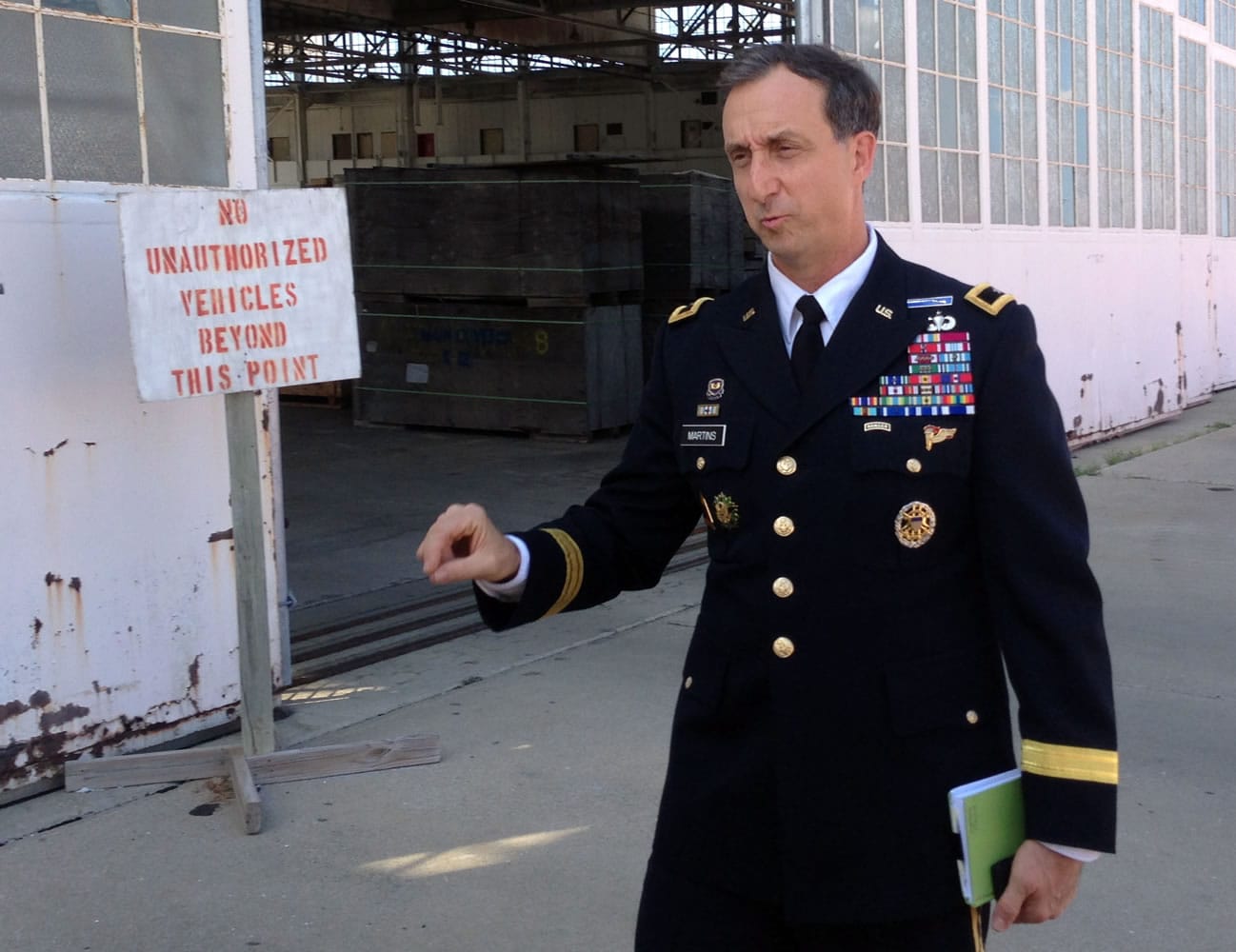GUANTANAMO BAY NAVAL BASE, Cuba — Colleen Kelly came to Guantanamo Bay with a sense of impatience, dismayed at the U.S. military’s floundering effort to try five detainees charged with roles in the Sept. 11 terrorist attack.
Having lost a brother at the World Trade Center, Kelly has closely followed each new development as the case lurched along since the men were brought to this U.S. base in Cuba in 2006 from clandestine overseas CIA detention centers.
She was at the latest pretrial session as an observer chosen by a lottery for family of people killed in the attacks. Before coming to Guantanamo, she was skeptical about the decision to try them by military commission instead of a civilian federal court. That didn’t change after seeing it up close last week, but she felt some optimism. But only some.
“It’s very, very frustrating,” she said during a break in proceedings. “It’s been 14 years since Sept. 11 and I just don’t feel like this is swift justice by any stretch of how we would define swift.”
Still, she said, “The prosecution has been incredibly dedicated … and people are so dedicated to seeing this through. There are forces just outside of anyone’s control.”
The latest hearing resolved some lingering issues, but old and new challenges continue to haunt a death penalty case that remains so mired in preliminaries that prosecutors and defense lawyers will no longer even estimate an approximate trial date.
“I’ve heard predictions for just when the trial will start of 2018, 2019, 2020 and never,” said Dror Ladin, a staff attorney with the National Security Project of the American Civil Liberties Union who was also observing the proceedings. “I think a fair amount of people don’t think the trial can ever get underway.”
Part of the challenge has been logistical. The government must fly in five defense teams and a contingent of prosecutors and the military judge, plus support teams, for sporadic pretrial hearings at the remote base on the southeastern end of Cuba.
And part of the challenge has been political: President Barack Obama withdrew charges against Khalid Shaikh Mohammad, the self-proclaimed mastermind of the 9/11 plot, and his four co-defendants so they could be prosecuted in federal court in New York, part of a broader plan to close the Guantanamo detention center. But that provoked fierce opposition, and Congress passed a law that prohibits taking any prisoner from the base to the United States. That law has also kept Obama from closing the prison itself, which now holds 114 men.
The five were arraigned a second time in May 2012 under a military commission system that was amended to give additional rights to the accused. The charges against them include nearly 3,000 counts of murder in violation of the law of war, hijacking and terrorism for planning and providing support to the plot.
The latest problem began to emerge barely 10 minutes into last week’s opening hearing in what is planned as a two-week pretrial session.
One of the five defendants, Walid Bin Atash, told the court he might be interested in representing himself. Before doing anything else, the judge had to craft a formal warning about the risks of not having a lawyer in this complex terrorism trial. The prisoners are held in maximum-security isolation and don’t have access to the classified material that will make up a significant portion of the evidence against them.
That was only the start of the problem. In working with the judge and prosecution to draft the warning over the ensuing four days, defense attorneys were informed of a secret program referred to in court as the Alternative Compensatory Control Measure that could have some effect on the ability of any of the defendants to serve as their own lawyers. Whatever it is, and only a small number of people know because the information is classified as top secret, the defense lawyers said it raised ethical issues that would affect the case — in ways they could not disclose.
“The more that everybody has discussed it the more issues have come up,” Jim Harrington, a lawyer for defendant Ramzi Binalshibh, said after a closed meeting with the judge.
It’s only the latest snag in the case. In April 2014, proceedings ground to a halt when Harrington disclosed that members of his defense team had been questioned by the FBI over a suspected security breach.
Then, at a hearing last February intended to resolve whether the investigation created a conflict of interest for the lawyer for Binalshibh, several of the defendants recognized a new interpreter as someone who had worked at one of the CIA’s clandestine prisons, prompting another halt and defense effort to learn more about the man.
The judge, Army Col. James Pohl, was supposed to rule on the conflict issue when the proceedings began last week. That’s when Bin Atash raised the issue of representing himself, and nothing else got done for the rest of the week.
Pohl ruled on Monday that there was no conflict of interest, rejecting a defense argument to keep the proceedings on hold while they explore the issue further. The judge then recessed the hearing until Wednesday.
The chief prosecutor, Army Gen. Brig. Mark Martins, says that a great deal of work is going into providing evidence to the defense and that delays are just part of the process.
“The judge is working according to the law and rules of procedure, not any specific schedule. And the law may compel him to suspend or stop or recess as we have been,” Martins said.



